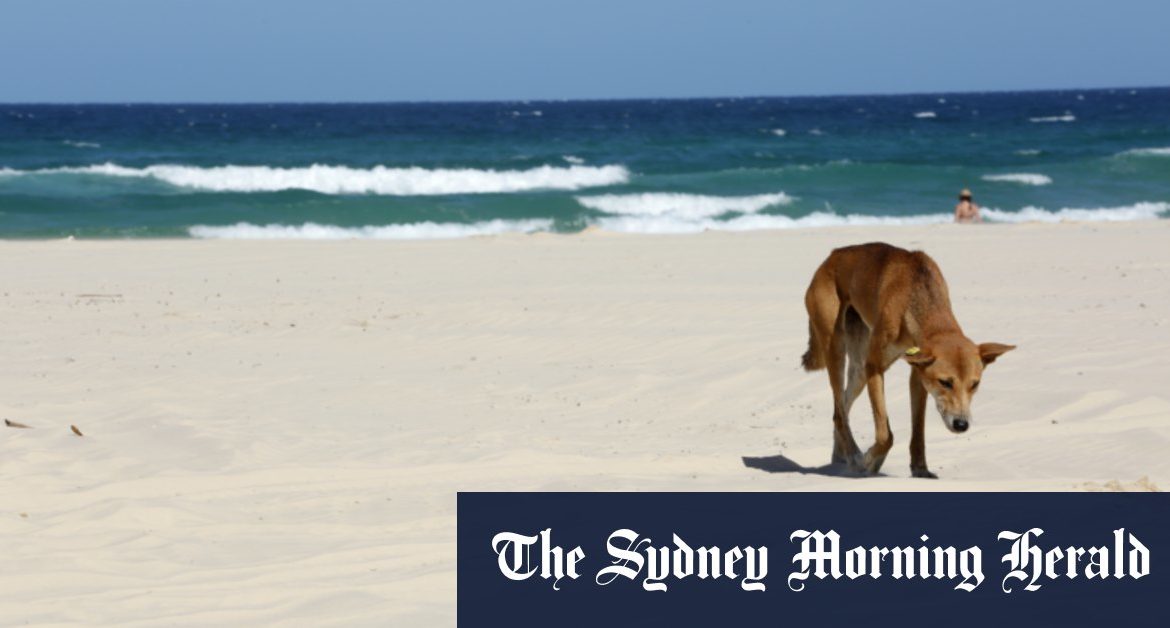Queensland Parks and Wildlife Service regional director Mick Cubis said the action was being taken to reduce the potential for further incidents, and to “ensure the long-term viability” of the island’s dingo population after day visitors and campers had, deliberately or inadvertently, fed the animals or interacted with them for selfies.
“Some wongari at Wathumba have lost their natural wariness of people and have been loitering around campers and day visitors or seeking food,” Mr Cubis said. “Unfortunately, some residents and visitors to the island are directly impacting on the wongari’s natural role in the ecosystem, which increases the risk of negative interactions.”
Along with sightings at Wathumba, rangers and traditional owners have seen a number of dingoes at Orchid Beach, Sandy Cape and Waddy Point in the north, along with Eurong and Lake McKenzie further south on the World Heritage-listed island.
Campgrounds at Eli, Maheno, Guluri and Wahba were closed in September last year and are not scheduled to reopen until June 30.
Dingo advocates have been aware of a litter of juveniles in the Orchid Beach area, along with reports of people feeding them, and were worried about any incident leading to the animals responsible being euthanised.
The parks service has previously used tracking collars to reduce negative interactions between the animals and humans if the dingoes were not determined to present an “unacceptable risk” to the public.
Loading
The dingoes grew accustomed to the absence of people during the COVID-19 closure of the island, Mr Cubis said, but since its reopening, authorities have seen a return to “thoughtless and potentially dangerous behaviour”.
“Tour group operators, campers and residents have been supplying information and photos about wongari offences to QPWS,” he said. “Rangers also check social media posts to determine whether people have been interacting or feeding the wongari.”
Rangers recently freed one young dingo from a fishing lure near Wathumba Creek on the north-west coast of the island – also known as K’gari – sparking a call for visitors to take care as they return in the wake of the bushfires, which also kept visitors away and burned more than half the island.







